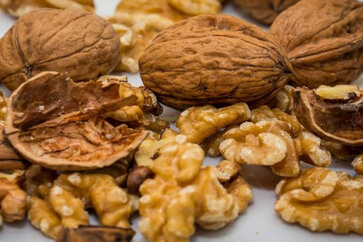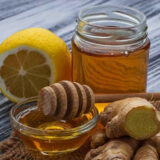Ayurvedic Tips – How To Stay Healthy In Winter Season
 In Ayurveda and Yoga, special emphasis is placed on maintaining health and preventing disease. Through time, the factors of daily life that generate health have been studied in detail.
In Ayurveda and Yoga, special emphasis is placed on maintaining health and preventing disease. Through time, the factors of daily life that generate health have been studied in detail.
In addition to establishing the seasonal measures that must be followed to be in harmony with the daily and seasonal cycles. The daily habits are known as dinacharya in Sanskrit whereas the seasonal ones are called rutucharya.
Rutucharya consists of adapting the body to the evolution of the seasons, both to produce specific changes in diet and in seasonal routines in the case of extreme seasons.
Each season is governed by a dosha because it has the same characteristics and attributes.
- Winter, in the northern hemisphere: December, January, February
- Winter in the southern hemisphere: June, July, August
In both cases Kapha accumulates in our body, due to the cold and humidity, in the spring routines, we will see what happens with this accumulated Kapha. The purpose of doing winter routines well is to control this fact.
Food should be eaten in each season to appease the seasonal doshas, paying special attention to those seasons that correspond to our Prakriti.
Winter routines
Due to the cold, the heat of the skin and peripheral tissues is pushed into the body, so it is necessary to make the digestive fire strong, increasing the appetite.
However, it is good to eat a hearty breakfast of oatmeal or some hot spiced cereal. Alternating this breakfast with vegetable soups or kitchari. Then have a tea of dried ginger, cinnamon, and cardamom, with a pinch of cloves.
Improves circulation and removes mucus (excess Kapha ) from the system. In any case, if you have an ulcer or intestinal inflammation, it is better not to take this as it is very hot.
At noon, you can have a hot soup, whole grain bread with ghee or oil, and steamed vegetables among others. Add hot spices when cooking. It is better not to take any naps after eating because it increases Kapha and slows down metabolism.
Winter is the best time to eat protein. Dinner must be early between seven and eight; with meals, you can drink red wine to aid digestion. In general, at this time you should eat 35% bowls of cereal, 20% proteins and 35% vegetables, and 10% fruit.
Winter tips
Usually, in winter the sky is cloudy, and it is cold, the movement is slow and therefore it is a Kapha season. A diet to reduce Kapha is important, especially for people of this constitution,
However, the qualities that aggravate vata, such as dryness and cold can also be present on winter days, therefore vata individuals should be aware and not abandon the whole autumn routine.
- You don’t have to get up as early as in summer and autumn, since the sun rises later, at 7 o’clock is an ideal time.
- You can recite a prayer in gratitude to Mother Earth, or a mantra that you especially like, the Gayatri mantra is an option.
- You have to clean your teeth (with an herbal paste such as cloves or cinnamon) and your tongue, with your face and hands. Then we do our natural needs.
- We will have a glass of hot water with honey and lemon.
- If we have not had a satisfactory bowel movement, we sit back in the bathroom, to stimulate the eliminating action in us. If we do that every day the body will get used to it and it will soon be satisfying.
- You can do some yoga poses, they will help you open the chest and cleanse the breasts, and eliminate possible congestion.
- Once the yoga session is finished, you can close it with pranayama that warms you like Bhastrika (breath of fire), which cleanses Kapha dosha. Next, you breathe through the right nostril to promote circulation and warmth.
- It is not necessary to go out unless necessary since it is a season to hibernate, therefore meditation is important.
- Then we apply sesame oil all over our bodies and take a hot shower. Sesame oil, which is hot, benefits all constituents in winter.
- For a good breakfast, we can have cereal cream.
Ayurvedic infusion for winter
- Ginger (1/2 tablespoon)
- Cinnamon (1/2 tablespoon)
- Clove: a pinch
First of all heat the water to the boiling point now add the herbs and cover at least ten minutes, now drink the infusion. It will warm us up and remove the mucus from the system. If we have an ulcer this tea is not recommended, it is too hot. You can swap the cinnamon for cardamom.
Other Tips
- The winter colors are white, black, and gray, therefore we have to counteract with warm colors, such as yellow, orange, and red, which are the most suitable at this time.
- We must always wear our heads covered, more than 60% of the body’s heat escapes through the head, so we must prevent it from leaving, we also protect the neck and ears.
- To eat, we must try to eat a diet that calms Kapha but does not aggravate vata.
- In winter, a nap after eating is not recommended as it increases Kapha, slowing down our metabolism, and reducing digestive fire.
- Ayurveda recommends drinking a little red wine with meals during this season to improve digestion. Take 4 tablespoons of wine mixed with water before or after meals.
- Winter, when the sky is overcast and everything is gray outside, brings us loneliness and depression. Following a diet that balances Kapha will help us. If possible, do not separate yourself from your friends, family, or partner in winter.
- At the end of the day put some sesame oil on your head and the soles of your feet.
- According to Ayurveda, this season is when you can have sex more often.
- A short fast, of a day or two, is fine if your digestive fire is strong. You can drink apple or pomegranate juice during the fast.
- At this time you can take an herbal tonic like Chyavanprash or pipali like Rasayana.























